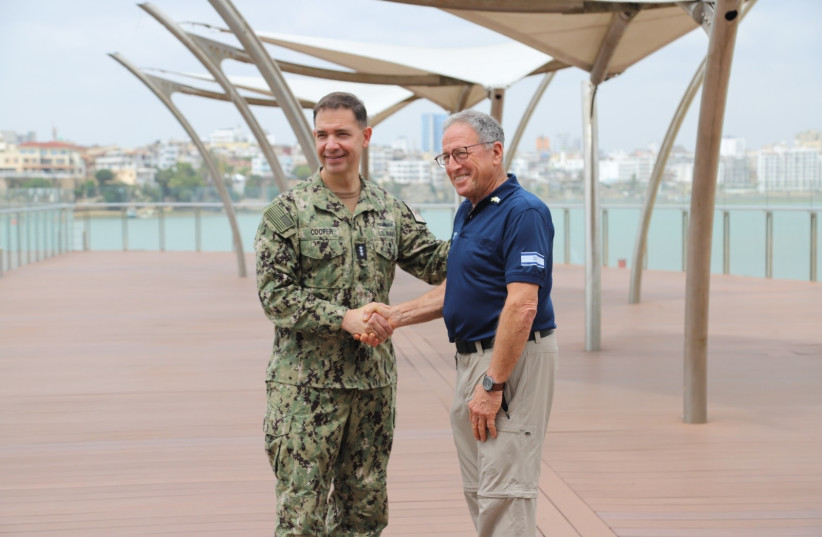For the first time ever, a team of experts from Sheba including doctors, nurses, and simulation specialists has worked alongside military and civilian personnel from Kenya, the US, Qatar and Denmark to exchange ideas and best practices in mass casualty and public health emergencies.
The training included disaster-related clinical skills and operations, ending in a full-scale mass-casualty exercise.
Israel's Sheba Medical Center at Tel Hashomer conducted a training program in Mombasa (in the southeast of Kenya) with the US Navy’s 5th Fleet (NAVCENT) aimed at enhancing the preparedness of the Kenyan Navy for both civilian and combat mass casualty scenarios.
Almost five months of preparation were invested in creating this first-of-its-kind mission with Sheba, which is part of the 5th Fleet's “Central Partnership Station” in the Middle East and Africa. Vice-Admiral Brad Cooper, commander of US Naval Forces Central Command guided the combined week-long mission to Mombasa.
Prof. Elhanan Bar-On, who heads Sheba’s Humanitarian and Disaster Response Center, led a team of doctors, nurses, logisticians, simulation experts from MSR – Israel’s national simulation center, as well as WHO consultants. The team erected an advanced tented facility that simulated an emergency room in a field hospital similar to the one deployed last year in Mostyska in western Ukraine.

Exchanges on medical-related topics were a major focus. Medical professionals met to share ideas and best practices in treating patients in mass casualty, tactical combat care and public health emergencies.
Preparing for the worst with global medical professionals
Military and civilian personnel from Kenya, Qatar, Denmark, NAVCENT and US Naval Forces-Africa also participated in professional exchanges and community engagement events across the coastal city alongside their medical colleagues from Sheba. The training included both disaster-related clinical skills and system operation during a mass casualty event and culminated in a full-scale mass casualty exercise.
“Your presence here in Kenya is the key piece of all this," Cooper said.
“I think this is an opening for us to do a lot with the US Navy and Kenya. Medicine and healthcare have no politics and no boundaries. With the camaraderie we found here, we can take this relationship a long way,” Bar-On added.
“This mission is a uniter. Thank you to the whole team. Amazing job,” Cooper responded after witnessing the facility set up by Sheba for the training.
“It was exciting to see so many experts from multiple nations come together to discuss a wide range of topics,” Lt. Col. H Parker Consaul, NAVCENT’s lead planner for the event summarized. “Collaborating during this mission has built lasting relationships, strengthened partnerships and allowed us to learn so much from one another.”
“We leveraged the knowledge, skills and abilities of all participants to enhance our relationships and build interoperability,” said Lt. Freddie Mawanay, NAVCENT’s global health engagement officer.
During the mission’s opening day, NAVCENT hosted a Women, Peace and Security Symposium that included a panel discussion with participants from Kenya, Qatar and the US. The conversation focused on the prevention of conflict and the promotion of peace through the empowerment of women.
